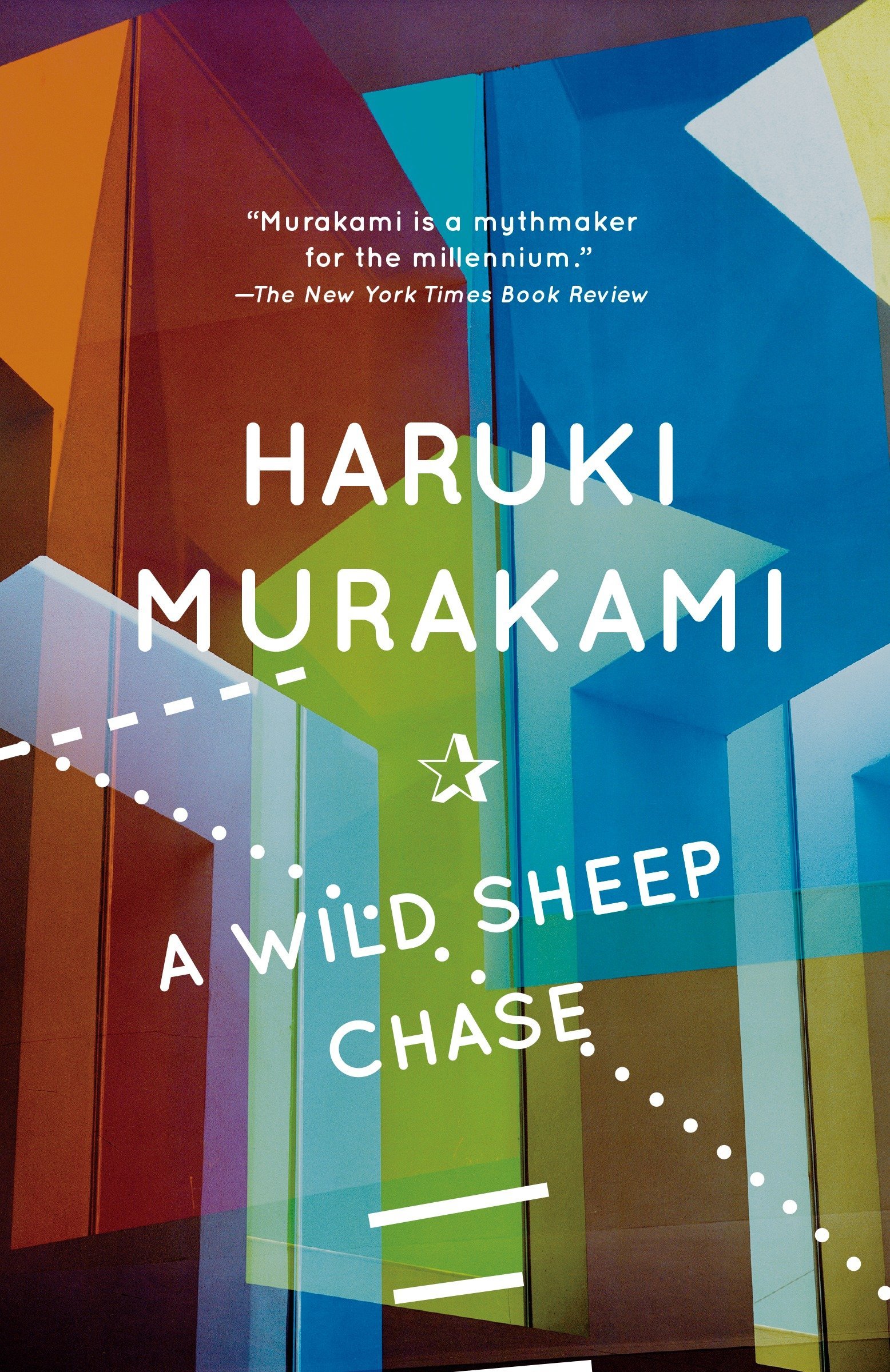Book Review: A Wild Sheep Chase (1982), by Haruki Murakami

I am reading my way chronologically through the works of Japanese writer Haruki Murakami. A Wild Sheep Chase is his third novel...
For those seeking an entry point into the often mysterious and at times completely inscrutable world of Haruki Murakami fiction, I can definitively say that A Wild Sheep Chase is not it. Taken by itself, out of context, just purely as a work of fiction, it does not "work" at all, in my opinion. Even placed within the context of Murakami's works, which I am endeavoring to completely wrap my arms around (by reading all of them, in order) I have to feel that this is a forgettable effort.
From a purely mechanical perspective, the book is a failure. The "chase" part of the story doesn't start until half-way through the book and, even when the chase begins, it's just not very exciting. The main character ends up in an abandoned farm house just waiting around for the answer to the mystery to come to him while he smokes, drinks, eats, thinks, and reminisces.
Now, if you have already read some Murakami in your life, you might be knowingly nodding your head right now. You see, the "quest" is a big part of Murakami's fiction. So is a character being trapped or holed-up in her own or someone else's home while she eats, smokes, thinks, reads the paper, reminisces about old times, etc. The domestic routine -- as boring as it might be to read about -- is an important feature in Murakami's writing and, in a weird way, partly what helps ground his writing in reality since most of the time it is pretty "magical realist" and even dreamlike.
Where does A Wild Sheep Chase fit into the broader Murakami oeuvre?
A great question. A Wild Sheep Chase is Murakami's third novel and the third novel in the Rat Trilogy. His first three novels -- Hear the Wind Sing, Pinball 1973, and A Wild Sheep Chase -- each feature a character called "the Rat." The first two novels in the series -- Wind & Pinball -- are so short they are sold together as one book. Apparently they were not even published in the U.S. until at least a decade after Murakami wrote them. They are under-wrought and amateurish, with brief glimmers of insight and talent, but on the whole these books are skippable unless you're obsessed with Murakami. I'm told even Murakami is slightly embarrassed by them.
I'd love to say there is a tremendous step up in quality from those two novels, to A Wild Sheep Chase, but there isn't. At most, Murakami expands upon the "quest" theme he employs in Pinball 1973 -- sending the main character on a trip to find (you guessed it) a magical sheep -- in order to give the book a bit more of an engine. However, it ends up reading like a two-stroke lawn-mower engine that's been left outside all winter.
One day, when I get around to it, I would love to delve deeper into the Japanese fiction of the late-60s and 70s that might have influenced Murakami and also in order to place his work into the proper context of its time and place. I think I might be more inclined to forgive him for what I currently consider to be three mediocre (at times achingly boring) novels in a row. Until then, all I can do is read and try to critique them in the current time and place: 40 years later and half the world away from when and where they were written. But a great work of fiction (of any kind of art) transcends its context; these books do not.
I am really looking forward to reading my way up into the "good" Haruki Murakami books, like Norwegian Wood, Dance Dance Dance, and A Wind-Up Bird Chronicle, because it's clear that in these first three books Murakami was very much still an amateur, experimenting with the tools he would later use to earn himself the international fame and awards that have been lavished upon him for his work. If he stopped after A Wild Sheep Chase, I feel confident no one outside Japan would have ever heard of him.
Next up: A Hard Boiled Wonderland and the End of the World, Murakami's fourth novel.

Comments